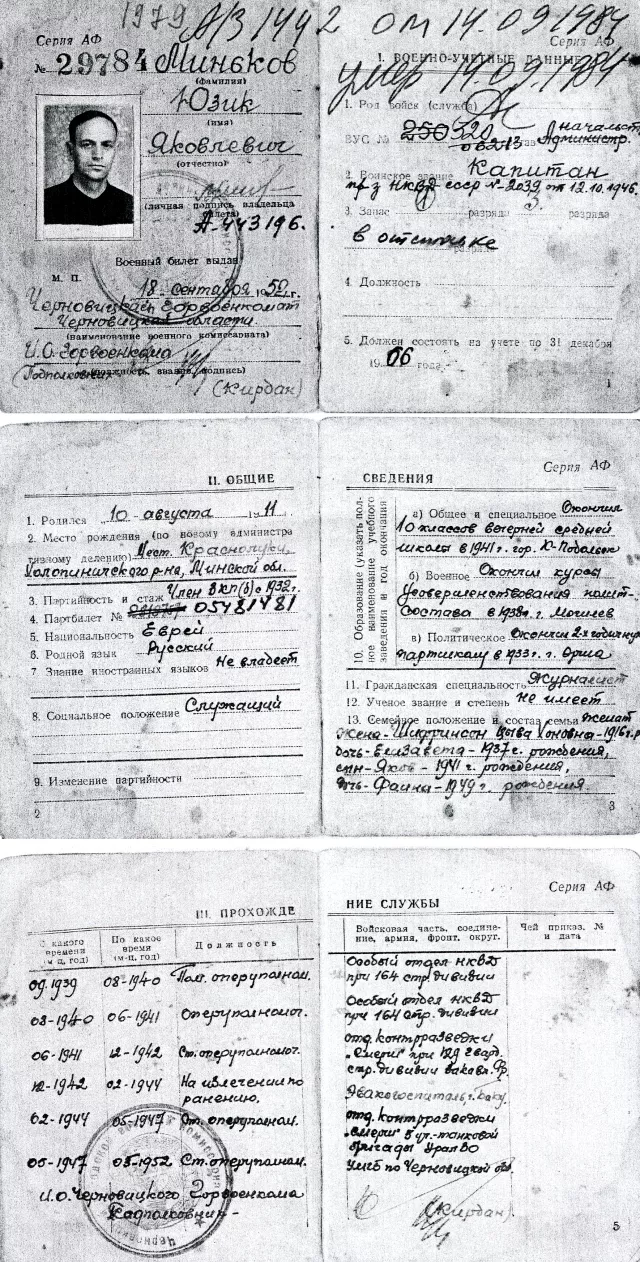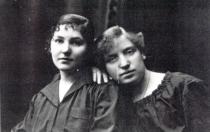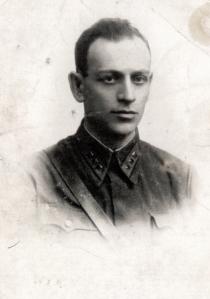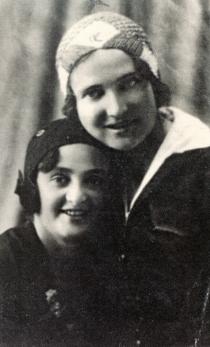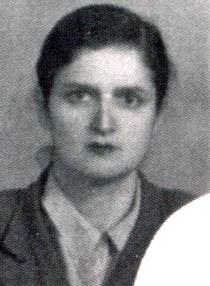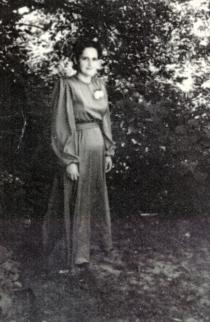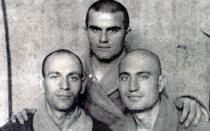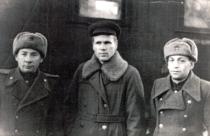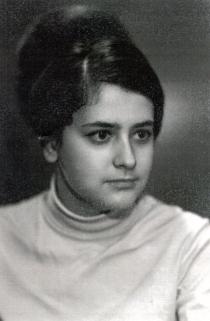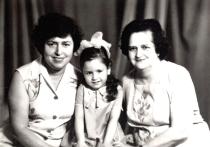My father Yuzik Minkov's war certificate. He received it when he retired in 1952.
My father was a political officer and an NKVD employee. During the Great Patriotic War he was appointed a SMERSH [acronym for 'Death to Spies', internal security service division]. But my father wasn't just a clerk sitting in the office. He spent a lot of time at the frontline where he was severely wounded in 1942. He had multiple wounds on his chest, abdomen, arms and legs. He was lying on the ground for over six hours. There was a German sniper on a tree. A star on my father's cap reflected sunrays and the sniper kept shooting until it got dark. Only then my father's comrades got a chance to get him out of there. He was taken to a hospital behind the lines in Baku where he had surgery. It was a miracle that he survived. He had his ribs removed on one side and there were big scars on his chest. He lost a lot of blood. He was in constant pain. There were no analgesics available, and his doctor gave instruction to nurses to give him alcohol anytime he would wake up. Later my father never drank alcohol. He used to say that he had had too much alcohol.
My father stayed in hospital from December 1942 till February 1944. Then he was sent to the Caucasus to complete his treatment. He didn't have any information about his family. He didn't even know about the baby. It took him two years to find his family. He got information in 1944 saying that they were in the Ural. The same year he returned to his military unit at the front. In 1945 my father got an assignment in Japan and then in China. [This was during the war wit Japan.] In 1947 my father was sent to fight the enemies of the Soviet regime in Chernovtsy, Western Ukraine.
He worked at the KGB office until 1952, when the campaign against cosmopolitans began. Many Jews, including my father, were fired. Of course, he knew why he had been dismissed, and this caused him a lot of suffering. Nevertheless, he remained a devoted communist. He mourned for Stalin in 1953 and didn't believe a word about the denunciation of his cult. We weren't allowed to say a disapproving word about the Soviet regime, or, God forbid, tell a political anecdote. For my father everything about the Party was sacred and certainly not subject to discussion or criticism. He explained that what happened to him was a mere mistake and that it was impossible to avoid such mistakes. My father couldn't get a job for a long time. This was the period of blatant anti-Semitism. The situation was very hard for our family. My mother used to sell our belongings to get food for the family. In the end my father got a job at the human resource department of the woodwork factory. Later he got another job at the Electronmach plant.
